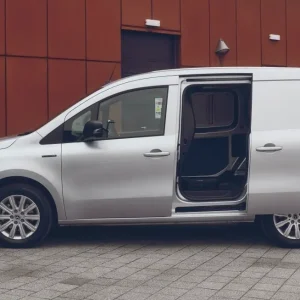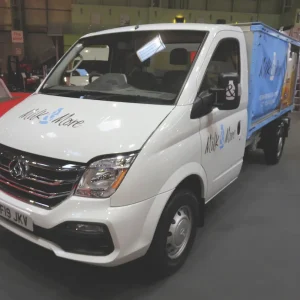The recipe was simple: get a group of UK fleet’s finest light commercial vehicle managers together in a room, feed them thought-provoking questions plus tea, coffee and biscuits, then hear the conversation flow and note the best bits.
The venue just to the north of the M25 ensured a great turnout – the AA, Arval, Lex Autolease, Southern Water Services and more were all in attendance – and the topic on this occasion was how businesses running light commercial vehicles can minimise downtime.
Discussion one: Keeping it moving – How do drivers remain mobile with the inevitability of downtime?
The first discussion brought a calm and reasoned debate about the relative difficulties faced by bigger and smaller fleets in scheduling maintenance based on the different tasks they have to undertake. Mick Cook, senior fleet engineer at Babcock Emergency Services, acknowledged as much. “It can be done in the night if you’re a big player,” he began. “Maybe it’s harder for smaller players, but the vehicles’ systems can help” (i.e. when a warning light goes on to indicate a service required).
Steve Hobbs, transport & legal compliance director at BML Utility Contractors, has fleet demands that have seen him adopt an in-house approach to minimise downtime: “It’s cheaper for us to do our own servicing. As our vehicle engines are on all the time the service light comes on way before mileage limits are reached.”
For other fleets with relatively local beats, like Public Sewer Services, additional vans waiting in the wings is another solution. As its transport & accreditation manager John Moran put it: “We have spare vans and are only Essex-based, so our drivers are never too far from us.”
The AA’s new business development manager, Dean Hedger, pointed out that how well your fleet is able to cope with these scenarios can depend on how utilised your fleet is. “If you’re pretty much at maximum utilisation, dropping one vehicle will have a big impact,” he said.
“But the type of vehicle is relevant too: if it’s a standard one then it’s quite easy to get something to replace it, but if it’s a bit more specialist, that’s when it can cause jams.”
Eddie Parker, product manager at LCV Arval, considered the original question by breaking it down. “Let’s look at those three key words: ‘mobile’, ‘inevitability’ and ‘downtime’,” he begun thoughtfully. “Does the driver always need to be mobile? And if downtime is inevitable, let’s make downtime as small as possible. That goes down to planning, regular maintenance and driver education.
Downtime doesn’t necessarily have to have an impact on the business if [the vehicle is] driven by someone who is knowledgeable about the vehicle and its safety and maintenance. Driver education is key. I’m sure all the people round this room have had experience of drivers who will do everything in their power to destroy a van if they don’t like it. ‘Wrong badge’, ‘Not what I wanted’, etc.”
“That’s where driver training comes in,” interjected Andy Hill, commercial vehicle manager at Lex Autolease. But which approach is best: carrot or stick? For Arval’s Parker the ‘stick’ can be useful, especially when it has a financial element. “When you explain the implications to their wallets and future insurance,” he says with a wry smile, “they take note, and suddenly become very interested.” From Hobbs’ perspective at BML some ‘carrot’ helps too, though: “We’ve tried the stick approach but now use incentives. The best driver of the month might win £100 to take his wife out for dinner.”
To be fair to Parker, he too saw the benefit of some ‘carrot’. “I saw two accidents this morning that came as a result of a lack of driver training,” he said. “So it’s about encouraging the professional nature of van driving, seeing who is receptive. It’s also about understanding where accidents happen. We have a client who suffered a plethora of accidents inside car parks, not in reversing but when the vehicle was stationary, and by people manoeuvring around car parks and impacting with their vehicle. So by putting £50-worth of hi-vis fluorescent tape on the extremities of our client’s vehicles we cut that by 20%.”
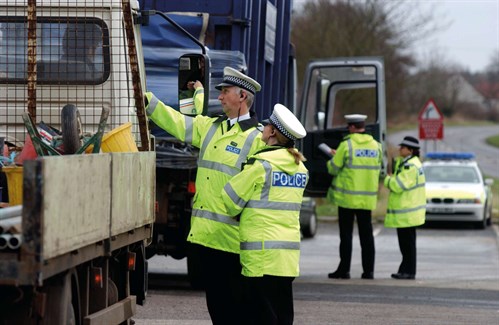
Driver training could help avoid this type of unwanted vehicle downtime
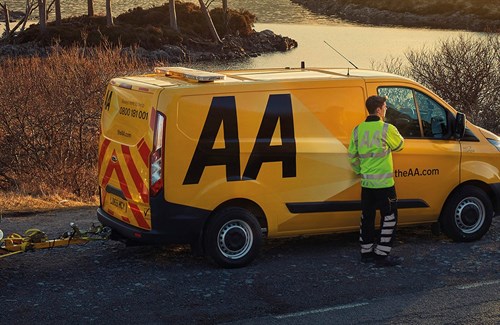
One solution to breakdowns for firms operating locally is to keep spare vans
Discussion 2: Preventing the unexpected – The effectiveness of smart tech in monitoring vehicle status and scheduled maintenance
While human-centric driver training is one way to minimise downtime, utilising data and technology is certainly another. As Martin Mitton, assistant fleet contracts manager at Southern Water Services, explained: “Telematics can generate fault codes, which the fleet manager can then discuss with the driver, to book his van in, rather than relying on the driver to do it.” Mitton was also a believer in evaluating certain standard equipment to aid ‘prevention’ rather than having to deal with the ‘cure’. “It’s about looking into the data,” he said. “For example, parking sensors and automatic emergency braking system costs versus the cost of accidents.”
Most in the room worried that the amount of data generated to help fleets had the potential to become overwhelming or at least hard to manage, as the AA’s Hedger pointed out: “The van world is going the way of the car world. Data gets recorded, but then the question is, who owns the data and what do we do with it? There’s also the issue of switching off mentally and letting the machine decide. That can be dangerous.”
Lex Autolease’s Hill concurred, but added: “It’s still up to the human to decide what action to take based on the information the machine gives you – when to take that van off the road.”
In general, though, the panel seemed to appreciate the potential of technology to monitor everything, whether that’s the severity of a driver’s speeding or in maintaining vehicle storage-zone temperatures to keep food fresh or medication cool.
Discussion 3: Reducing costs and emissions – The impact of clean-air zones and how smart integration can help
There seemed to be a certain amount of personal scepticism about ‘going green’ to comply with clean-air zones for vans among the panel, given the dearth of suitable vehicles available and their cost.
But whether they agreed with such zones or not, Arval’s Parker was pragmatic about how to react, as he said: “They’re here to stay, so we have to work out an answer.”
Lex Autolease’s Hill unsurprisingly espoused the benefits of leasing at this point, but nonetheless had a valid point when he added: “It’s about a blended solution. And if you lease rather than buy you’ll always have the up-to-date vehicles to meet the latest regulations.”
John Moran of Public Sewer Services was honest in how his business sometimes has to react to the zones, when updating his fleet is too costly and in his business case perhaps too complex: “We can ‘pay to pollute’, and sometimes maybe we have to.”
BML’s Hobbs agreed and added candidly: “We have to swap vehicles around as we have some that can’t go into the zone and some that can. And if you’re only going into London three times a month, £36 a month is a cost worth swallowing versus buying a new hybrid. But other cities are following London and technology can help. We can ring-fence areas via our telematics so certain vehicles can’t go in.”
Discussion 4: A greener future – Do more alternatively fuelled vans mean more or less downtime?
The previous chat about clean-air zones moved the conversation nicely on to electric vehicle ownership’s potential upsides. Mick Cook of Babcock Emergency Services has enough electric cars and vans to give good empirical evidence. “We have a few hundred BMW i3s and some Nissan NV200s, and while they don’t have the complexity of operation that some of our diesel vans do, we’re not getting many problems,” he said.
“A ding in an i3’s carbon chassis can be tricky, but we don’t have endless engine management lights coming on.”
Lex Autolease’s Hill cited a case study in a dockyard in Portsmouth where two-year EV contracts were seeing savings of up to £300,000. “It’s a very controlled environment, of course,” he conceded, “but if the environment suits, it can work.”
Outside in the wider road network the AA’s Hedger added that his organisation is now looking to offer mobile charging units to help stranded EVs, and training staff to cope with broken-down EVs.
The discussion then moved on to the feasibility of hydrogen and overlong lead times for new EVs due to current high demand from all sectors. Then after a few hours of hearty debate, lunch was calling and it was time to wrap up. In his closing remarks chairman and What Van? editor James Dallas asked the panel quite simply: “Do you think it’s possible for diesel vans to be replaced by EVs in urban areas?” To which, without prompting, all chimed in, in unison “Yes!” suggesting that despite all the potential issues and caveats, electric vans have a bright future and could well be another downtime eliminator.
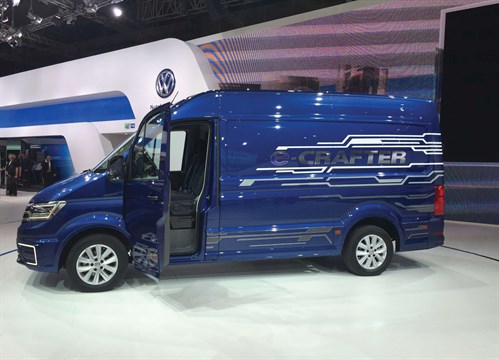
EVs should cut servicing time

